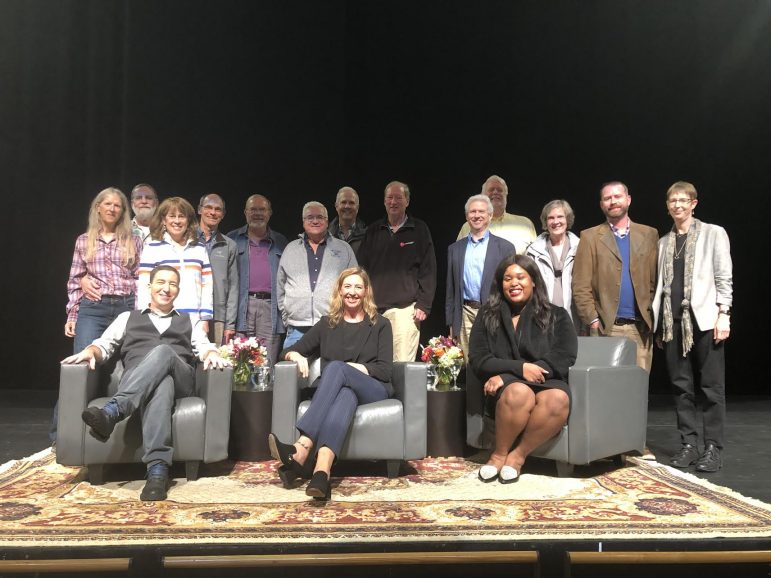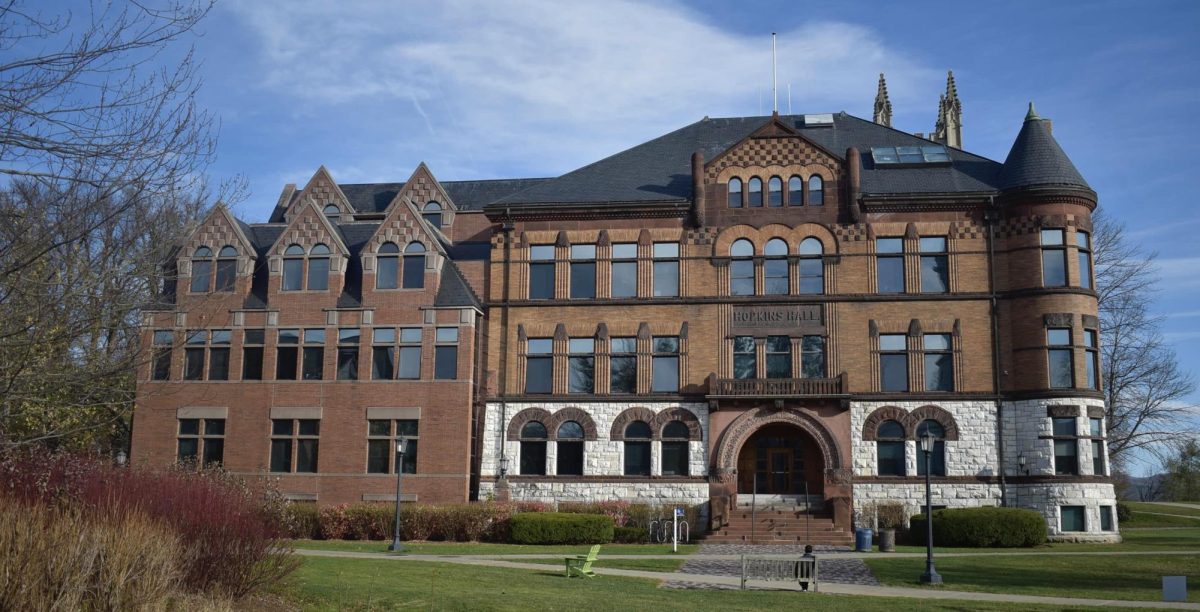
The debate over the internet’s impact on the world can be polarizing, but three prominent journalists sought nuance on the subject in a Thursday conversation at the ’62 Center for Theatre and Dance.
More than 100 attendees watched Call Your Girlfriend host Aminatou Sow moderate a panel with The Intercept co-founder Glenn Greenwald and Marketplace Tech host Molly Wood in an event sponsored by The Class of ’71 Public Affairs Forum, The Cohan Family Forum Fund and The Thomas B. Healy ’50 Fund.
Associate Professor of Women’s, Gender and Sexuality Studies Gregory Mitchell, who led the lecture committee that planned the event, said the event’s aim was to generate a lively conversation around the problems we face in a digitized world.
“Students were very interested in thinking about the relationship between social media, technology and the political moment we are in,” Mitchell said. “Students today are the first generation to have to think about things like Russian hacking, the role of Facebook in elections, the possibility of deep fakes and their past online selves following them through their political and civic lives.”
Greenwald won a Pulitzer Prize for Public Service in 2014 for his reporting on NSA surveillance for The Guardian. He said that while his reporting on the documents leaked by Edward Snowden taught him to be critical of the internet’s facilitation of surveillance, he believes the internet’s merits should be recognized. When Greenwald started The Intercept, a left-wing online news outlet, he appreciated the ease with which people commented on the blog and made corrections.
“I think [technology has] really diversified the types of voices that are heard,” he said. “You no longer have to own a satellite station or a printing press, but you can make a free Twitter account… On balance, I would rather have this anarchy of the internet than 1972, when you had to be a member of the oligarchic class to have a voice.”
But the increased connectivity has come with costs. Sow, who is Black, noted that those costs especially harm communities of color.
“We all pay a different fee,” she said. “As a person of color, there’s a lot I don’t need to see… It’s not a democratic platform for everyone. Not everyone has access. Not everyone has the same power.”
In addition, digital spaces are often assumed to be predominantly male, a notion the panel sought to challenge.
“It was also important to me that the panel prominently feature women because we often get this stereotype in our head that there are no significant female voices in tech, which is not at all true,” Mitchell said. “So I was thrilled to have Molly and Amina.”
The internet’s emphasis on generating clicks and “engagements” has encouraged content to be more provocative, Wood said. When individuals realize they can attract more attention through inflammatory and incendiary speech, she said, digital shouting matches naturally follow.
“If you can talk about everything and you can always have disagreements, then you can always say something,” she said. “Then it just becomes this overriding ethos.”
Yet she and Greenwald both expressed concerns over intellectual censorship or self-censorship. Greenwald argued that it is important for young people to take risks and to question assumptions in their transition to adulthood.
“One of the most valuable human experiences that can bring growth is to have dialogue with people who think differently,” said Greenwald, who cautioned against allowing private actors like Facebook to determine what sort of speech is acceptable. “Sometimes you see flaws in your own thinking. If we communicate solely with like-minded people, we lose that capacity… In some ways, the internet disembodies and dehumanizes us because you’re not talking to someone – you’re typing.”
He cautioned, though, that the digital age has forced that pursuit to be balanced with caution, as saying something irresponsible could remain on the internet forever.
Greenwald added that, while it is easy to romanticize a foregone past, the problems that exist with the internet are modern adaptations of previous problems. Wood, too, said that the internet has mirrored society’s broader anxieties, but she noted that it also has the potential to mirror the good in society.
“It’s worth protecting,” she said. “Its really a modern miracle.”








